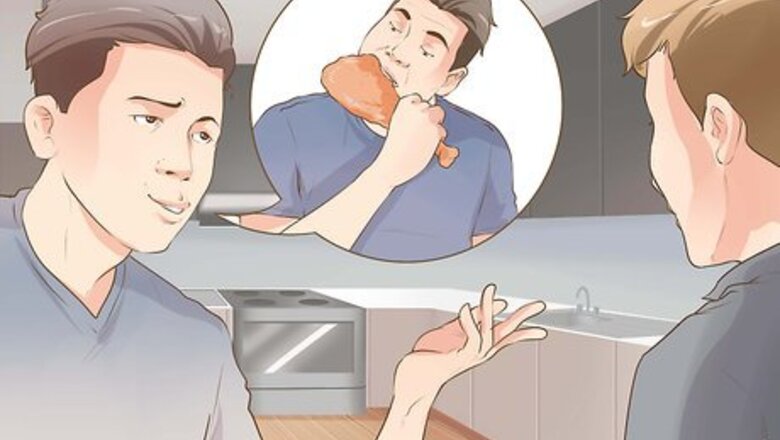
views
X
Trustworthy Source
HelpGuide
Nonprofit organization dedicated to providing free, evidence-based mental health and wellness resources.
Go to source
However, an eating disorder will only get worse if it is not addressed and treated. You can help a friend with an eating disorder by trying to talk to them about it in a supportive way. If you feel your friend’s eating disorder is not getting better, you should seek professional help for them so they can get the professional support and guidance they need.
Talking to Your Friend about the Eating Disorder
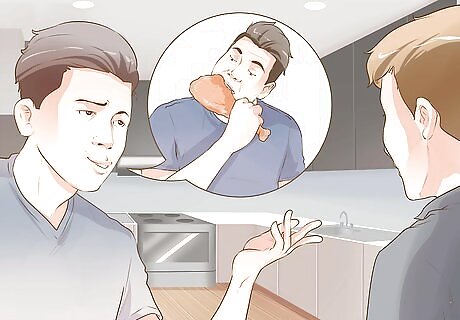
Set aside time to talk one on one. Make sure you talk to your friend privately in a space where they feel comfortable, such as your home or their home. Pick a spot where there will be no distractions or interruptions. Having a one on one conversation will also prevent other people from entering the conversation and firing accusations or opinions at your friend. Sitting down with a group of people and your friend can feel like an aggressive environment or an attack on them, rather than a supportive conversation.
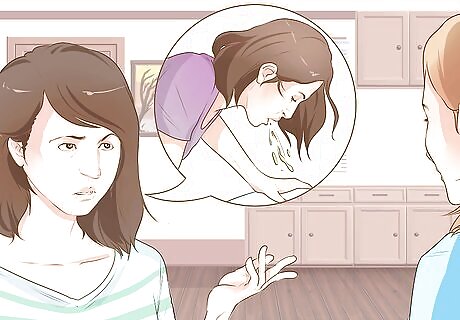
Share specific moments where you were concerned about your friend’s disorder. Open the conversation by talking about specific moments where you concerned about your friend’s health due to their eating disorder. Avoid blanket statements like, “You have a problem” or “You have an eating disorder”. Instead, use specific instances where you experienced the negative effects of your friend’s disorder. For example, you may discuss when you and your friend went to a casual get together at a friend’s house last week. Using “I” statements, you may say: “I noticed that you ate a huge amount of food very quickly and then excused yourself from the table. From the bathroom, your other friends and I could hear you throwing up your food. This instance made me very concerned about you and your health. I am worried about you and want you to know how much I care about your well-being”.
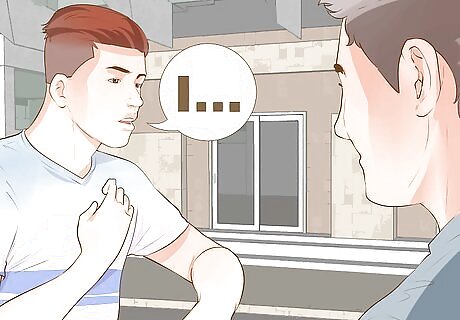
Use “I” statements. When you speak to your friend, you should always use “I” statements, as this will prevent your wording and tone from becoming accusatory or judgemental. Avoid statements like, “You seem sick” or “you should just eat”. Instead, always express how you are feeling in relation to your friend’s disorder and how you feel their disorder is negatively effecting their health. For example, you may bring up the fact that is it difficult to go to restaurants with your friend, as they either do not eat anything or binge eat. You may say, “It’s difficult for me to go to restaurants with you because I will order a meal and you will not eat anything the entire night.”
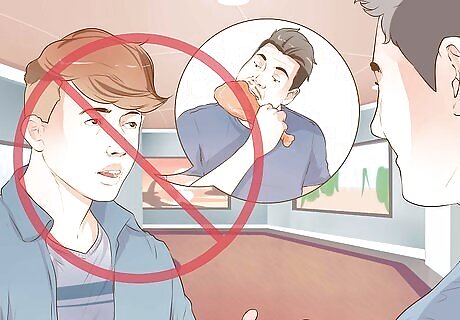
Avoid passing judgement or shaming your friend. It can be a hard line to walk, especially when you want to be supportive of your friend, but also snap them out of their disorder. However, eating disorders are a mental illness that requires support and understanding, not judgement or shaming. Often, eating disorders are tied to other trauma or other mental issues and will not be easily solved by just eating food. Though it may be tempting to tell your friend, “If you would just eat, you would be fine!” or “Wow, I can’t believe you think you are fat”, it’s important to you try not to shame or bully your friend into eating. Remember that their disorder is a daily struggle and not a lighthearted issue. Your friend may also be suffering from body dysmorphia, a common disorder tied to eating disorders where they cannot see their actual size, so they may feel heavier than they actually are. These elements can all create a skewed perception of their weight, and these perceptions are not just going to go away if you tell them to “just eat”.
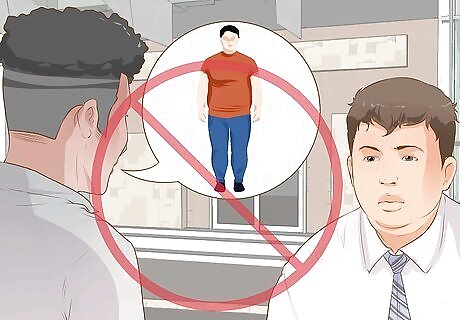
Do not comment on how your friend looks or their physical appearance. Avoid making comments about their weight or looks, such as, “You don’t look like you have an eating disorder” or “You look like you’ve lost weight.” These comments will only reinforce your friend’s obsession with their body and looks, leading them to focus even more on their eating disorder. Rather than tell your friend they are “not fat” or “do not have an eating disorder”, you can ask them to consider why they have a fear of being fat and what they think they can achieve by becoming thin. This will give them a chance to express their feelings and thoughts around their eating disorder, rather than feel shameful or embarrassed about it.
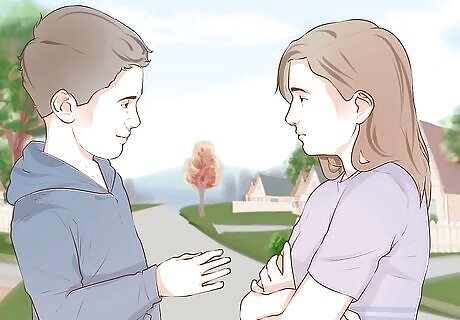
Practice active listening. Support your friend by actively listening to their thoughts and feelings around their eating disorder. This means sitting quietly and listening to your friend as they speak, making eye contact and nodding your head or smiling to assure them that you are listening. Once they have finished speaking, you should try to reflect their words back to them using your own words. Start by saying, “What I am hearing you say is…” or “I think what you meant was…”. For example, you may respond with, “What I am hearing you say is that your eating disorder is a way for you to feel in control.” Allow your friend to agree with your response and confirm that you listened to them properly. Once they confirm you have listened properly to what they have to say, you can offer advice or support.
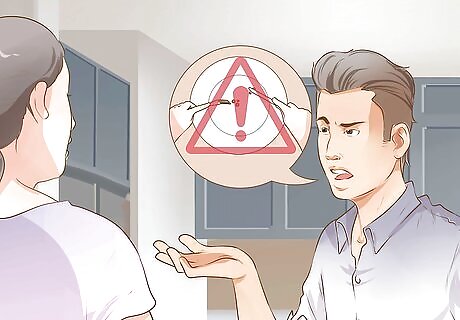
Assure them of your support and concern about their health. You should end the conversation by reinforcing your support and concern for your friend’s health. Make sure your friend knows that you care for them and do not want to see their health get worse due to their eating disorder. You can also end the conversation by gently suggesting that your friend get professional help for their disorder. Eating disorders will only get worse if they are not treated, so suggesting treatment is a useful way to try to help your friend deal with their eating disorder.
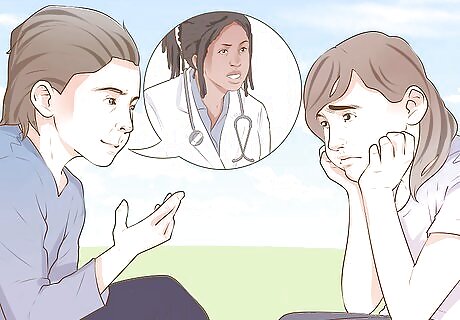
Encourage them to seek treatment, even if they deny they have a problem. It can be difficult for individuals with an eating disorder to admit that they have a problem and need help. If your friend does not want to admit they have a problem, avoid getting upset at them or trying to force them to face their eating disorder. Instead, present several treatment options that they can try and encourage them to start with a support group or one session with a therapist. Ease them into treatment and work with them to try to get them to open up about their disorder. It may take time for them to admit to themself and to others that they have an eating problem.
Seeking Professional Help
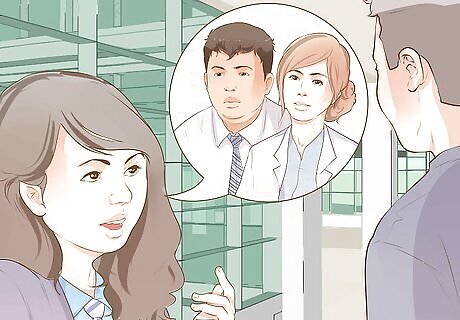
Get your friend’s family involved in the treatment process. If your friend’s eating disorder continues to get worse, you may want to consider reaching out to your friend’s family. You should first ask your friend if they would consider telling their family about their eating disorder, if they do not know about it already. Do not go behind your friend’s back and tell their family yourself without their permission or awareness. Getting your friend’s family involved should only be done if your friend’s health is seriously declining due to their disorder and they refuse to seek treatment. A more rigorous treatment plan, with a stay in a hospital or a rehab center may be required if their eating disorder becomes life threatening or very severe.
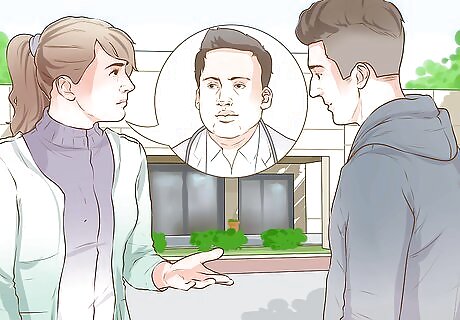
Develop a support plan with other friends and your friend’s family. Reach out to your friend’s family and other friends to talk about ways that you can support your friend with the eating disorder. Sit down with them and create a support plan, noting signs that your friend’s disorder is getting worse or getting out of control. Agree to take measures as a group, whether it is spending one on one time with the friend when they are having difficulties, or encouraging the friend to seek treatment if their symptoms become more severe. You may want to include a list of support groups and professional therapists that anyone involved in the support plan can call if your friend begins to get worse.
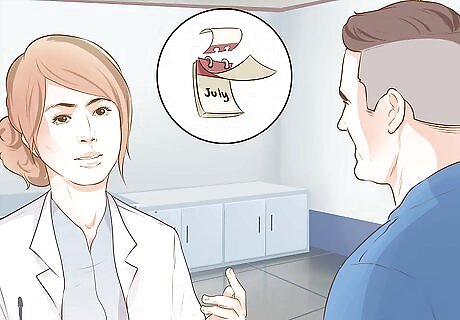
Offer to make an appointment with a therapist who specializes in eating disorders. Treatment for eating disorders is recommended based on the individual’s symptoms and the severity of their disorder, and often involves therapy sessions with a therapist who specializes in eating disorders. You can offer to make an appointment for your friend and/or accompany them on their first appointment as a show of support. Therapy can also be done in a group setting, where your friend can improve their self-esteem, understand their emotional triggers, and learn to respond to stress and emotional pain in healthy ways around others who are dealing with the same issues.
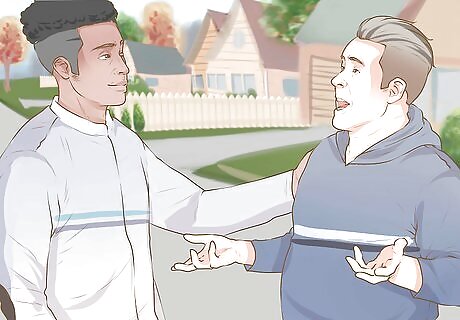
Suggest an eating disorder support group in your friend’s area. Support groups are also good ways to ease into treatment, especially if your friend is uncomfortable with therapy sessions. Look for an eating disorder support group in your friend’s area that is easy to get to and offer to take them to a group meeting. Support groups are often run by peers, rather than professionals, making them less intimidating. It can also be encouraging to learn about coping mechanisms and ways to view food in a healthy way from individuals who are struggling with the same issues.
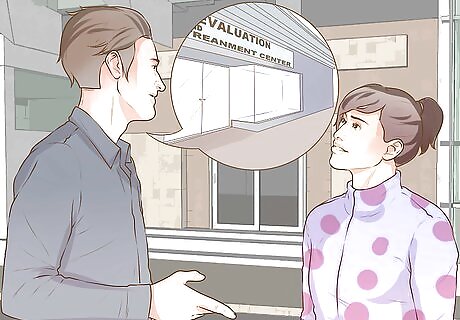
Encourage your friend to check into a treatment center if their eating disorder becomes severe or an emergency. Eating disorders that go untreated will only become more severe and could be life threatening. If your friend appears to be very thin and has very low energy, or if their purging habits appear out of control, you may want to encourage them to check into a treatment center. You may also want to get their family involved and other close friends so you can all work together to get them to check into a treatment facility, where they can get the help they need.










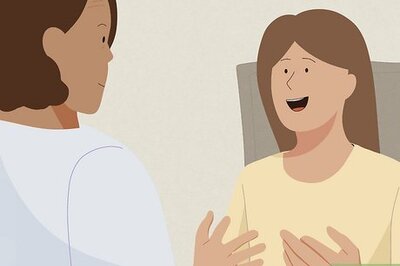








Comments
0 comment